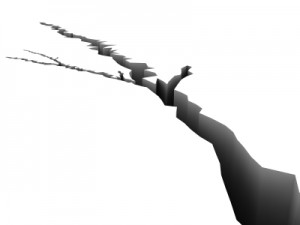From the equality of rights springs identity of our highest interests; you cannot subvert your neighbor’s rights without striking a dangerous blow at your own.
Carl Schurz
Over the next few months we will have lots of anniversaries hitting our radar and not in a good way. This month we will be at the 6 months since the devastating Haitian earthquake and in August and September we will have the 5 year anniversaries of Hurricanes Katrina and Rita .
Across the capital of Port-au-Prince, hundreds of thousands of people left homeless by the Jan. 12 earthquake have settled into camps. Aid workers and government officials say it’s clear that some of the almost 2 million people displaced by the quake will be living in “temporary” shelters for another year or more.
Many of the camps are dangerous. Some are at risk of flooding, and landslides threaten others. Many worry that some could be breeding grounds for disease, or that a hurricane could tear them apart.
Katrina and Rita forced over 1.5 million people from their homes and killed more than 1,000. The storm and the breaching of the levees in New Orleans destroyed or damaged close to 300,000 houses. The disaster devastated an environment, and shattered a regional economy. In case we had forgotten about the devastation, BP comes along and hits this area one more time.
Disasters expose our race and class fault lines. They put those hard ugly pictures that we like to ignore up front .
But the storms in each of these situations was just one part of the disaster.
Bone deep inequalities based on race and class — along with massive institutional failure — and with a country as poor as Haiti- turned natural disasters into a man-made catastrophe. This catastrophe laid bare our societal fault lines, race and class, which determine people’s vulnerability in disaster. Where you were in society when the storm hit largely determined how you were able to pick up the pieces of your life.
Today, almost five years after Hurricane Katrina pummeled the Gulf Coast, communities across Louisiana and Mississippi are still struggling to restore their homes and their lives. It could take the people of Haiti 10 to 20 years to restore their lives. People of color and low-income communities have found it particularly hard to return and rebuild because they have less access to wealth, resources, and decision-making power. Many lower-income and less-wealthy families whose homes were damaged have limited financial means to repair or rebuild them. Government aid programs have been a maze of confusion, inefficiency, power struggles, and red tape.
Rebuilding with equity
Whether the crisis is on the Gulf Coast or in Haiti one thing needs to happen – the local people need a vision of rebuilding towards justice. The communities that have suffered most — both during the hurricane and in its aftermath and after the earthquake — unjustly suffered because of underlying racial and class inequalities and discrimination.
Vulnerable people, without strong organizations to struggle for and with them, would not be able to return to and participate in the rebuilding . There are still many obstacles to returning, including a lack of affordable housing and social services, but it’s the perfect opportunity for us to right a lot wrongs. It’s an opportunity for all of us to love our neighbor as ourselves.

